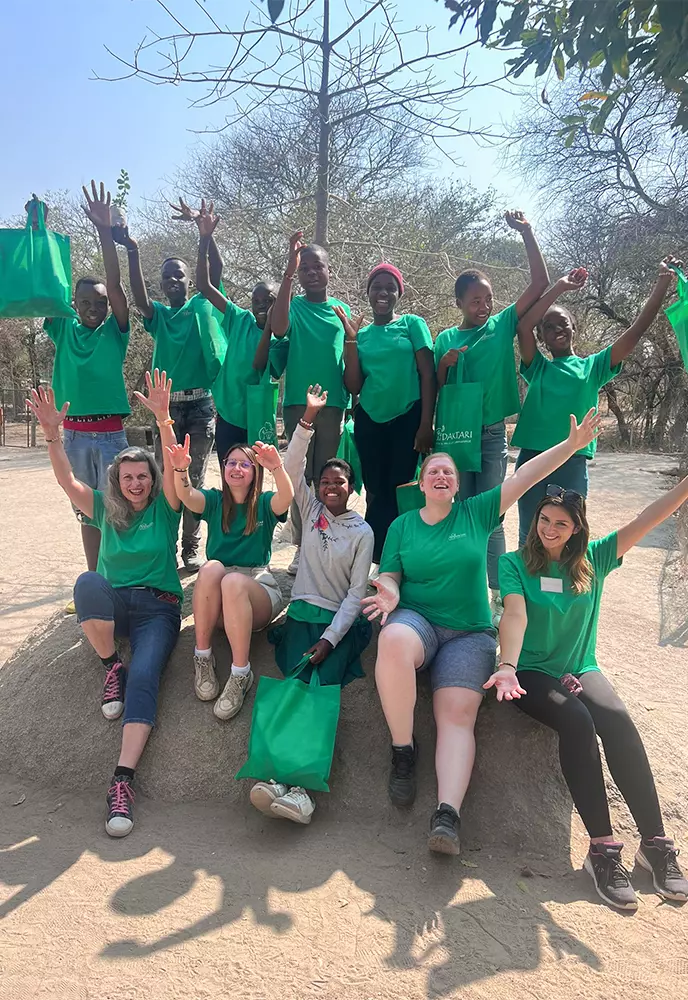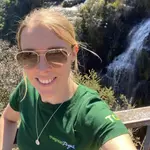

Wildlife Orphanage in South Africa
Care for orphaned animals whilst aiding the education of underprivileged children in South Africa.
Speak To A Travel Expert
Activities
Every Monday, a new group of 8 children are welcomed into the bush school where they spend the next few days learning about conservation as well as other important social issues. As a volunteer, you will play a vital role in educating these children as well as helping to take care of the animals here. Activities whilst on the project include:
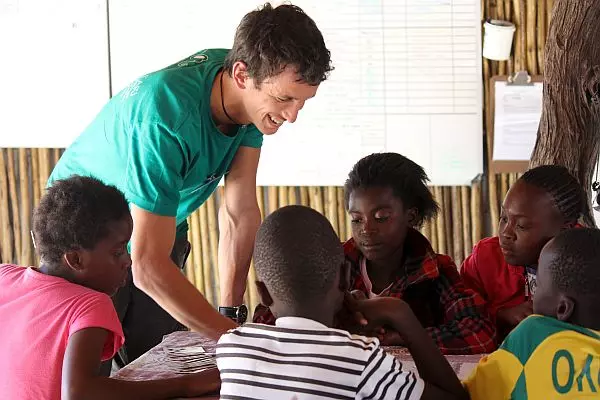
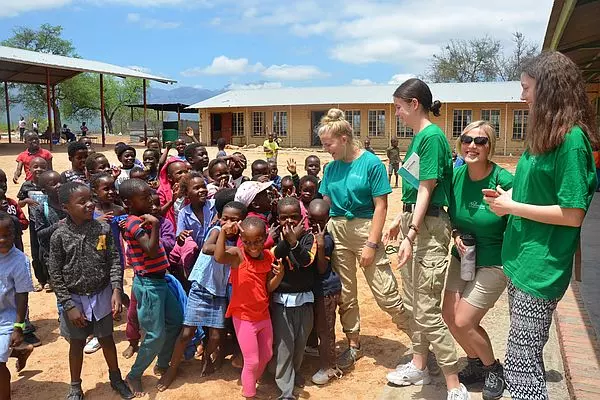
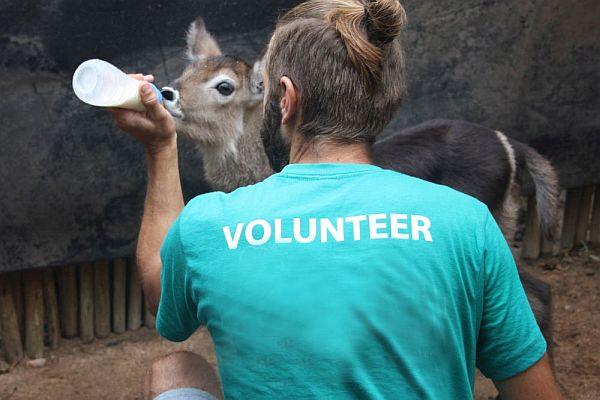
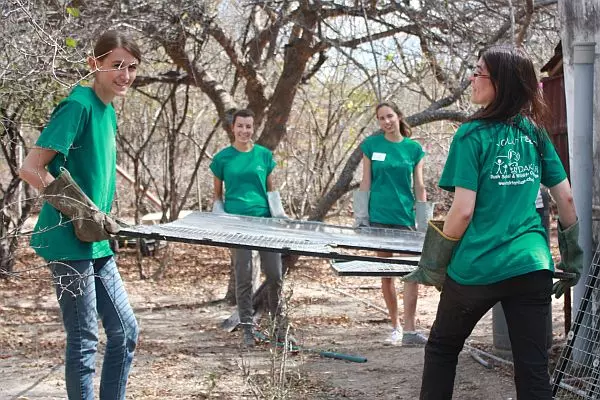
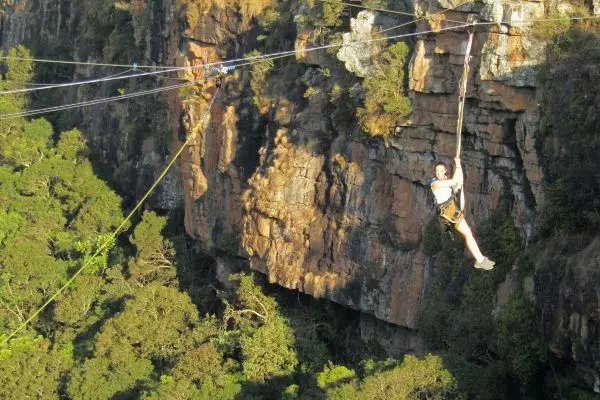
Itinerary
Please note, this project usually runs in blocks of two weeks, so if you choose to stay for a longer duration, the itinerary will repeat itself fortnightly.
Durations & Prices
Accommodation
Accommodation
Throughout your time on the project, you will share a rondavel (round chalet) with up to four other volunteers. If you are volunteering with friends, as a family or as a couple, the project will be happy to accommodate you in your own chalet, depending on availability.
The chalets are rustic yet comfortable, with western-style toilets and hot-water showers. There is no mains electricity on-site, though lighting and power are provided by solar energy and a generator. Elsewhere, you will have access to an outdoor living area and a swimming pool, which you are welcome to use during your free time.
Meals & Beverages
Three meals per day will be provided for you on this project, with all options being served in a buffet style. Options may vary from international favourites (such as spaghetti, pizza and burgers) to local dishes, and most dietary requirements can be catered for. Unfortunately, the project is unable to offer gluten-free options as these food items are rather expensive and hard to come by in South Africa. Therefore, if you require this, please bring your own food items with you.
Project Details
When Is The Best Time To Volunteer?
As this project takes place at a wildlife orphanage, you will be able to see animals here all year round, meaning there is no ‘best’ time to volunteer when it comes to the wildlife. That said, the weather may dictate when you would prefer to participate.
Spring (Early September-November) – also known as ‘baby season’, spring not only sees the arrival of heavy rains but welcomes new life into the region! Spring is a crucial time, as while the cooling rains offer a sense of relief (temperatures can reach as high as 32°C/89°F), this is also the peak time in which animals are orphaned or abandoned. This means that all hands are on deck to ensure that any animals found in need will receive the help they require, so if you would like to lend your assistance at a vital time for animal intakes, a springtime placement may be for you!
Summer (Early December-late February) – this is the hottest part of the year, with average temperatures reaching highs of around 33°C (91°F) and lows of roughly 19°C (66°F). This is also the wettest time of year, though you can mostly expect quick thunderstorms which vanish by the afternoon. We therefore recommend bringing a combination of light and waterproof clothing.
Autumn (Early March-late May) – this is perhaps the most comfortable time of year in which to volunteer, as temperatures average at around 29°C (84°F) during the day before dropping to roughly 13°C (55°F) in the evening. There is minimal rain during this period, making it a great time to spend outdoors with the children and animals!
Winter (Early June-late August) – just like autumn, winter is a comfortable time to volunteer at the project, with temperatures ranging between 26-28°C (78-82°F) in the day with lows of around 11°C (52°F). This is also the driest time of year to volunteer, and could also be a great time to head out on some additional excursions!
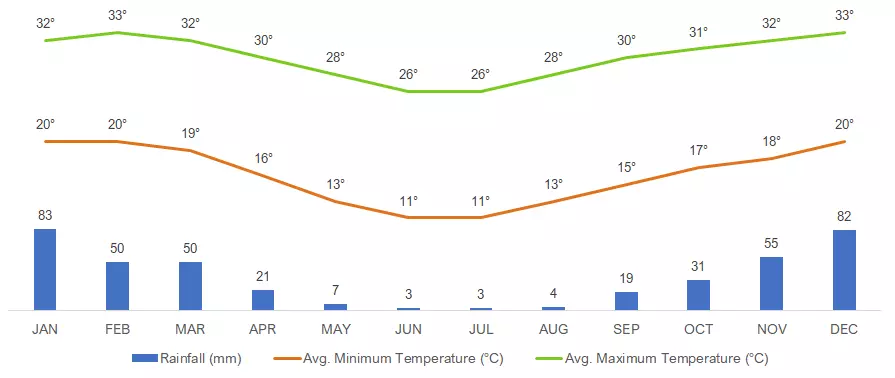
Getting There
You will need to arrive into Hoedspruit on your start date, where you will be met by a member of the team and transferred to the project site. The easiest way to reach Hoedspruit is by air, and there are daily flights via Johannesburg or Cape Town into Hoedspruit Airport (HDS). The transfer from the airport to the project site takes approximately 1 hour and you need to arrive between 11am – 3pm to take this.
An alternative option to reach Hoedspruit is by shuttle bus from Johannesburg. The shuttle bus departs Johannesburg Airport at 6:45am, so you would need to arrive the day before your start date and spend an additional night in a hotel close to the airport. The cost for this is ZAR985 (approximately $68) and it takes 5 hours to reach Hoedspruit.
Getting Back
You will be transferred back to Hoedspruit on your final day, leaving the project site at 8:30am and arriving at approximately 9:45am. If you are flying out, you will be dropped off at the airport, so please ensure your flight departs no earlier than 11:30am, as you will need to have plenty of time to check-in and go through airport security.
If you are taking the shuttle bus, you will be dropped off at the Kamegelo Centre and the bus departs from here at 11:30am.
Visa Requirements
Citizens of most countries (including the UK, USA, Canada, Australia and most of those within the EU) do not need to obtain a visa to enter South Africa and are granted entry for up to 90 days upon arrival. You will, however, need at least 2 blank pages in your passport for the immigration officials to use and your passport must be valid for a period of at least 6 months from your date of entry into the country.
If you are unsure of your individual visa requirements, we recommend speaking to the South African embassy in your own country at least 2 months prior to travel. Please note that visas are your own responsibility.
Fitness & Skills
You do not need more than a moderate level of fitness to take part in the activities here, however, there are regular walks to be taken and you must be able to keep up with the energetic children! Similarly, there may be an element of construction or maintenance work which takes place during your time on the project, therefore, we recommend that all volunteers have a moderate level of fitness in order to contribute to the project’s ongoing efforts. No prior building, teaching or animal care experience is necessary – all we ask is that you arrive with a willingness to take part and that you are passionate about the project’s ethos!
Vaccinations
There are no specific vaccinations required to join this project; therefore, we recommend consulting your GP/doctor or a travel clinic and following their advice on vaccinations for travel. You can also find helpful advice and information on the Travel Health Pro website.
Videos
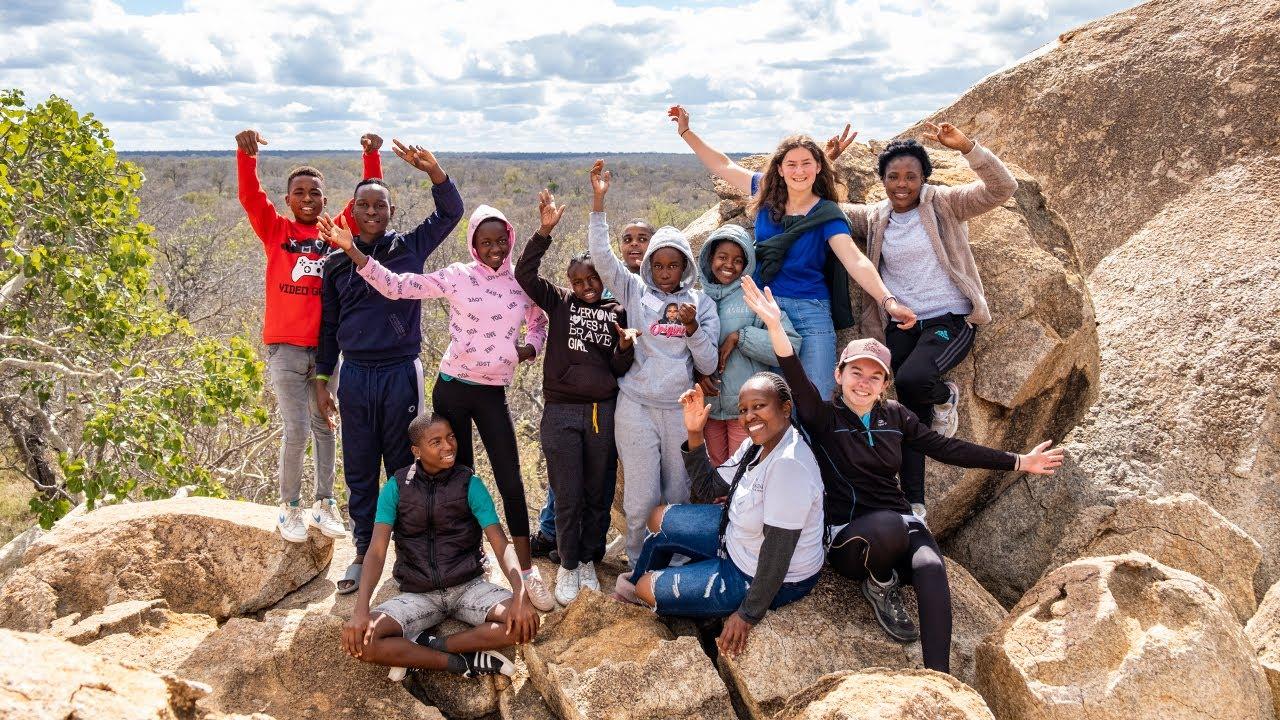
Experience the Wildlife Orphanage in South Africa
See what it's like to teach abroad at the Wildlife Orphanage in South Africa. Through education, you can have an impact on the future of wildlife conservation and give local children an experience they will never forget!
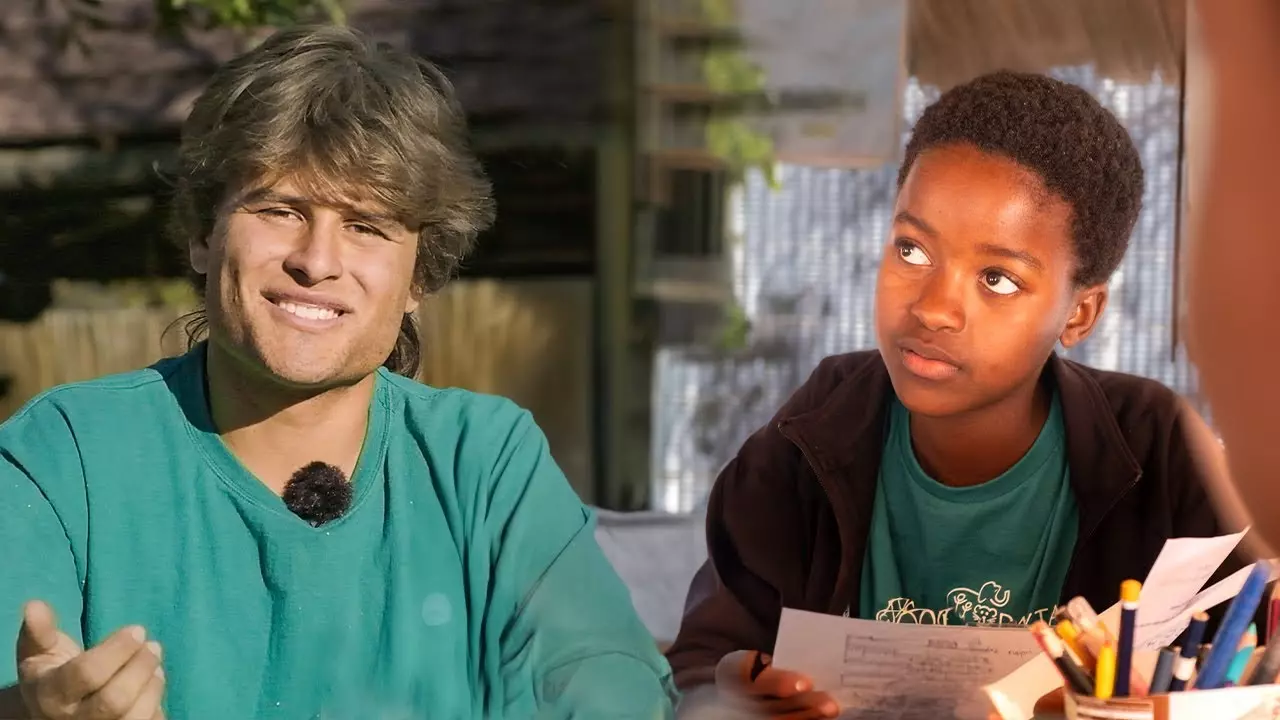
Volunteers share their love for wildlife with local children
Volunteers Lya, Clémentine and José share how you could influence the future of wildlife conservation through teaching at the Wildlife Orphanage in South Africa. Find out what it is like to volunteer and how your knowledge can benefit the lives of local children.
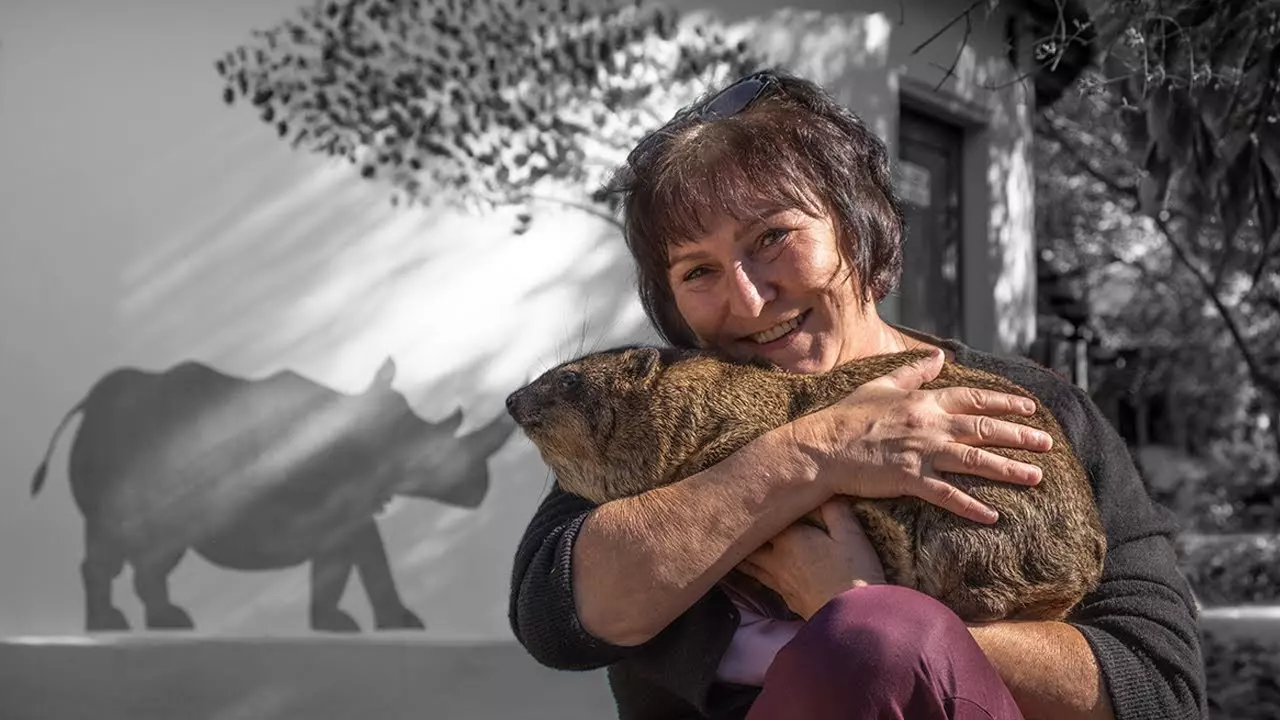
How the bush school and orphanage began
Co-founder Michelle Merrifield speaks about the origin of the project and how sharing a passion for wildlife with her husband Ian, evolved into a life-changing venture in the world of education and conservation.
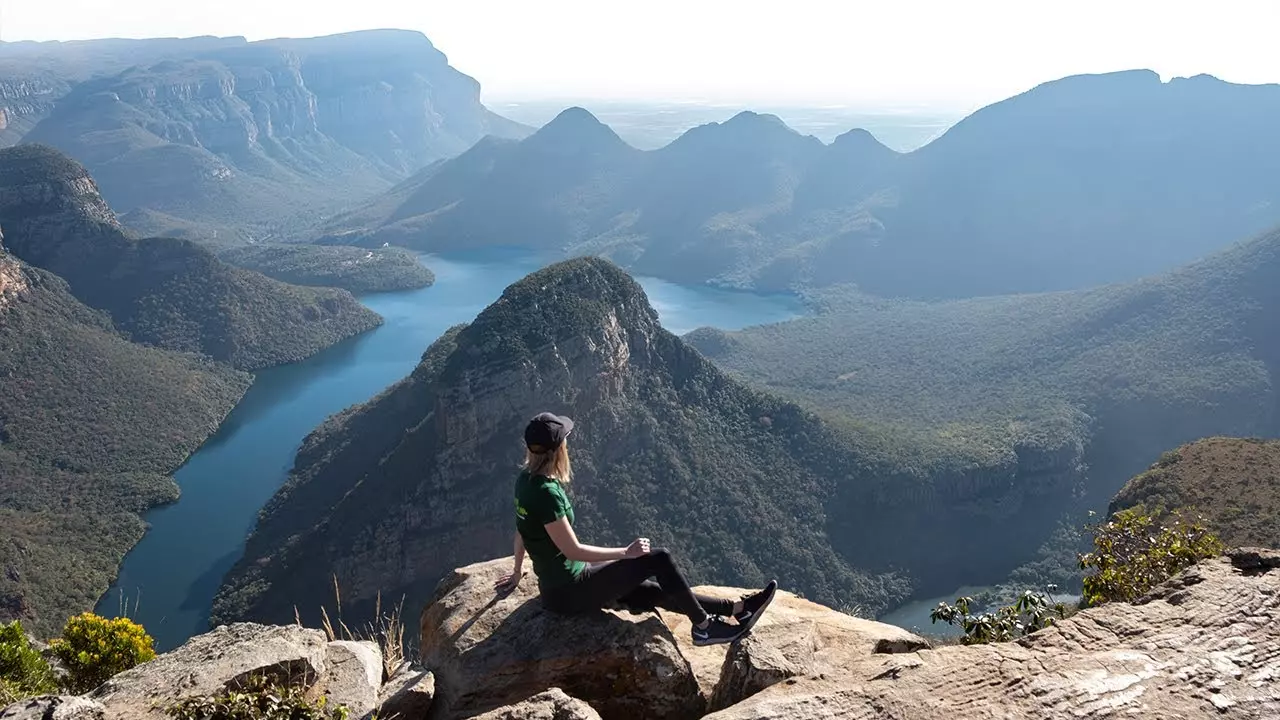
Weekend Activities in Hoedspruit
With weekends free for you to spend as you wish, discover just some of the incredible activities you could get up to. From ziplining through the Letaba River Gorge to experiencing a game drive in the world-famous Kruger National Park, Hoedspruit has something for everyone.
Gallery
Reviews
I volunteered 2 weeks at the Wildlife Orphanage in South Africa - caring for orphaned animals and weekly lessons for children in 8th grade from a nearby school. In addition we were able to spend time with children of different ages at the local crèche, kindergarten and primary school. Cleaning the cages and providing the animals with food was easier than expected, it felt completely natural. The program for the children was challenging, especially because so many different yet important topics were covered. Replacing some of the "frontal teaching" and writing down definitions with more group work and interactive learning would make a lot of sense to me. It would help the children to put what they have learnt into their own words so that we can be sure that they have understood it. After a busy school day it was heart-warming to see how much fun the children had meeting the animals and playing games with us volunteers. I can only recommend such an experience to each and everyone!
My favourite part was the friendships I made.
It was full on teaching which I was naive about! it was incredible.
What's Included
- Accommodation
- Three meals per day
- Airport transfers
- Laundry and housekeeping (except on Sundays)
- A donation to the project
What's Not Included
- Flights
- Travel insurance
- Visas




























